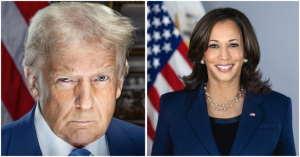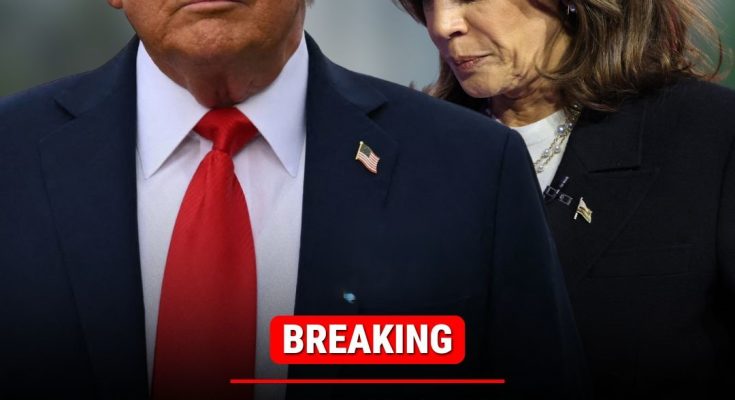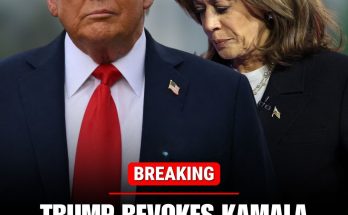President Donald Trump has revoked the Secret Service protection previously extended to former Vice President Kamala Harris, effective September 1, 2025. A spokesperson for Harris confirmed the decision to Fox News on August 29, emphasizing that no explanation was provided for the revocation. This move comes as a surprise to many political observers, given that Harris had been receiving extended protection under the Biden administration due to ongoing security threats. The early termination of her protection has prompted discussion among security experts, legal analysts, and political commentators about the precedent this sets for former elected officials.
Typically, former vice presidents are entitled to six months of Secret Service protection after leaving office. In Harris’s case, her protection had been extended beyond that period under the Biden administration, citing concerns about her public profile and potential risks stemming from her role in national politics. This extension, originally set to last until January 2026, ensured that Harris could continue public engagements, travel, and official appearances with proper security. Trump’s decision to revoke her protection months earlier has generated criticism from supporters and some bipartisan voices who argue that such protections are nonpartisan and essential to safeguarding public figures.
Security experts note that while revoking Secret Service protection is not unprecedented, it is extremely rare, particularly for former vice presidents. Past instances of revocation have often involved former officials stepping away from public life or no longer being considered at risk. However, Harris remains a high-profile figure due to her ongoing political activities, book tours, and potential future campaigns, which many argue makes her a legitimate target for threats. The timing and rationale for Trump’s decision remain unclear, leaving analysts to speculate whether political motivations played a role or if there were other security considerations involved.
The revocation of Harris’s protection follows a broader pattern of Trump rescinding security clearances and protections for former political opponents during and after his presidency. For example, earlier actions included revoking security clearances for figures such as former intelligence officials and political rivals. Critics have framed these moves as politically motivated, while supporters argue that the president has discretion to adjust protections and clearances based on security evaluations. In Harris’s case, the decision has drawn national attention because of her status as a former vice president and current prominent political figure.
As of now, there has been no public statement from President Trump or his administration explaining the specific reasoning behind ending Harris’s Secret Service detail. Harris’s team has indicated that they are reviewing alternative security measures to ensure her safety in the interim. Legal experts suggest that while former vice presidents are entitled to protection under federal law, the president has broad authority in managing the Secret Service, including the discretion to terminate protection when deemed necessary. The situation has raised questions about the balance between personal safety, political considerations, and precedent for former officeholders.
The broader political implications of this decision are significant. Observers note that the revocation may impact 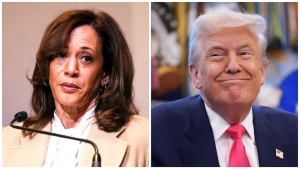 Harris’s ability to travel freely for public engagements, fundraising events, and book tours without additional private security arrangements. Supporters argue that ending her Secret Service detail could send a chilling message to current and former political figures, potentially politicizing what is traditionally a neutral security service. Meanwhile, political opponents of Trump may view the move as an attempt to intimidate or undermine a prominent national leader.
Harris’s ability to travel freely for public engagements, fundraising events, and book tours without additional private security arrangements. Supporters argue that ending her Secret Service detail could send a chilling message to current and former political figures, potentially politicizing what is traditionally a neutral security service. Meanwhile, political opponents of Trump may view the move as an attempt to intimidate or undermine a prominent national leader.
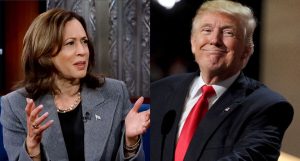
In conclusion, the early revocation of Kamala Harris’s Secret Service protection is an unusual and noteworthy action with both security and political ramifications. While the specific reasons behind the decision remain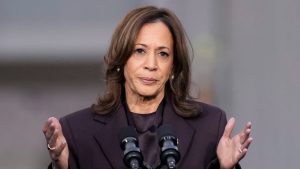 undisclosed, it has sparked debate over the responsibilities of former presidents in ensuring the safety of public officials, the role of political motivations in security decisions, and the precedent this may set for future administrations. Harris’s team continues to assess her security options moving forward, and the public awaits further clarification from the Trump administration regarding this unprecedented decision.
undisclosed, it has sparked debate over the responsibilities of former presidents in ensuring the safety of public officials, the role of political motivations in security decisions, and the precedent this may set for future administrations. Harris’s team continues to assess her security options moving forward, and the public awaits further clarification from the Trump administration regarding this unprecedented decision.